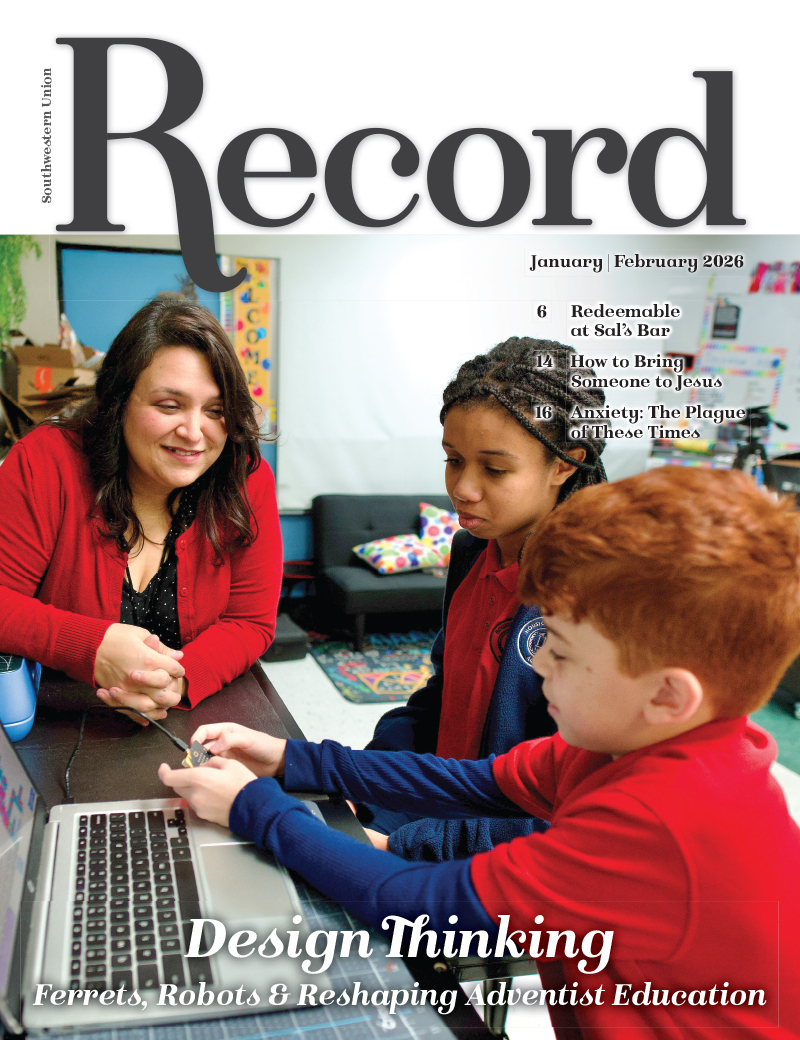Ministry of Healing

DALLAS – It is not a secret to anyone that COVID-19 is ravaging our country and the world: Over 500,000 deaths in the U.S. alone. Healing is needed. It is not a secret that racial profiling exists in United States. Healing is needed.
What may be a well-kept secret is the groundbreaking work being accomplished by Southwest Region Conference’s Education Department with financial support from Versacare Foundation. There is an active initiative and intervention happening that could easily be called “a ministry of healing.”
Early in 2020, La Sierra University’s Center for Conflict Resolution (CCR) was reviewing successful projects it was supporting around the United States. The American Psychological Association (APA) has an entire database that focuses on the relationship between conflict management and the psychological underpinnings that foster conflicts within organizations: APA PsycInfo. Therefore, CCR’s desire to assist Adventist communities in this time of unrest was a natural outgrowth of CCR’s “goal to help you resolve actual or potential conflicts….”
The Southwest Region Conference (SWRC) had successfully implemented a bullying prevention program in all eight of its schools across Arkansas, Louisiana and Texas. Could this forward-thinking conference discover new ways of ministering to hurting communities? CCR’s consultants believed that they could.
In April 2020 Superintendent of Education Buford Griffith, III, was contacted by Cliff Wright, Jr., a CCR Consultant, to discover what needs the SWRC schools and communities were experiencing due to the twin crises.
CCR’s consultants worked with our schools during the 2018–2019 school year, so trust, understanding and mutual respect created fertile ground for growth. After consultation with SWRC personnel, it was determined that the current crises required a specific focus: Holistic Self-Care.
A snapshot of the nation would reveal the following: social distancing compounded feelings of isolation among young and old, job loss and uncertainty were common in all communities and churches were closed. Mental health challenges due to stress were at record levels in the U.S. before COVID-19; during the pandemic the economic toll of lost wages, closed businesses, and closed parks and libraries fed feelings of depression. Domestic abuse soared. A ministry of healing was needed.
Dr. H. Jean Wright, II, a clinical and forensic psychologist from Temple University in Philadelphia, Pa., confirmed what research clearly indicated about all schools, even small private schools: Teachers were performing the role of first responders. They were the first line of defense for parents and students in crisis—physical, social and emotional.
First responders regularly suffer from secondary trauma, and it looks like post-traumatic stress disorder (PTSD).
CCR worked with the SWRC Education Superintendent to construct and implement a plan to safeguard staff, students and the ministry of education performed in those missionary outposts called “SDA Church Schools.” Data reviewed during Christmas break confirms the stress has been enormous, but the staff and students are showing signs of great resilience. For instance, some schools have even grown their enrollment. However, the most important data is not the size of the school, nor the revenue generated, but the health of the schools’ population and the homes that are impacted.
This initiative is ongoing, we praise God for the results and give thanks for the ways He supplies His children’s needs. CCR plans to give a full report to Versacare.org at the end of this academic year. We pray that lessons learned will be shared with all our ministry outposts (elementary, junior high schools and academies).
Griffith said, “During this pandemic, schools have found themselves in uncharted waters. Trying to navigate through virtual learning, students’ emotional stress and the adults’ own heightened stress levels was a massive challenge.”
“As we were developing best practices for the classroom, learning and the wellbeing of students there was no built-in help to address the teachers’ emotional and mental strain. Prayer and pastoral visits were the only tools available to most superintendents—tactical supports were not in place. If teachers are not in a good place emotionally and mentally, then instruction and school climate will suffer.”
The partnership between CCR and SWRC has given teachers, students and parents additional resources and support: monthly self-care check-ins for teachers, emotional support tools and techniques for schools and communities and external professionals to provide non-therapeutic guidance.
What I find most enlightening is that a little book written in 1905 called Ministry of Healing provided consultants in 2020 with direction on how to minister effectively during a crisis that none of us was expecting. Praise God for His abundant mercy and grace.
By Darryl E. Allen


